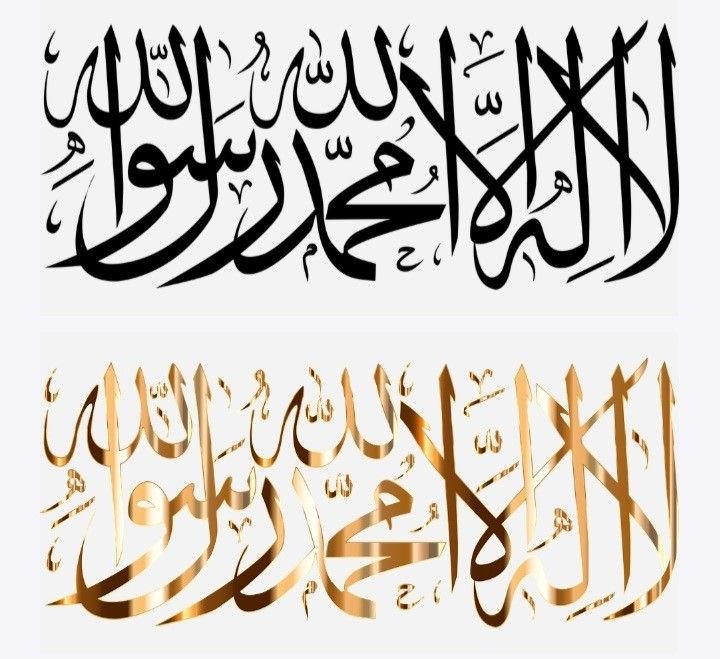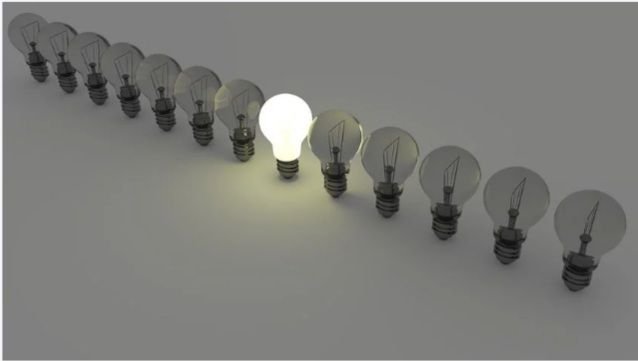Allah Made Me Victorious By Awe, (By Frightening My Enemies) For a Distance of One Month’s Journey
In The Name of Allaah, The Most Merciful, The Bestower of Mercy.
Allah Made Me Victorious By Awe, (By Frightening My Enemies) For a Distance of One Month’s Journey: [Nothing In This Hadeeth For The Khawaarij (terrorists) and Those Spiteful Secularists and Stupid Journalists Who Quote It From Them Without Understanding]
Jaabir bin Abdullah [may Allaah be pleased with him] narrated that the Prophet [peace and blessings of Allaah be upon him] said, “I have been given five things which were not given to anyone else before me. Allah made me victorious by awe, (by His frightening my enemies) for a distance of one month’s journey. The earth has been made for me (and for my followers) a place for praying and a thing to perform Tayammum, therefore anyone of my followers can pray wherever the time of a prayer is due. The booty has been made Halal (lawful) for me yet it was not lawful for anyone else before me. I have been given the right of intercession (on the Day of Resurrection). Every Prophet used to be sent to his nation only but I have been sent to all mankind. [Saheeh Al-Bukhaari. Hadeeth 335]
Regarding the statement: “Allah made me victorious by awe, (by His frightening my enemies) for a distance of one month’s journey”.
Al-Haafidh Ibn Hajr [may Allaah have mercy upon him] said, “What is understood from this is that none else was given victory through this fear in this time period nor thereafter”. (1)
Imaam As-Sadi [may Allaah have mercy upon him] said, “This was not given to any Prophet before him and it a mighty host by way of which Allaah aided him. When there was a month’s journey or a bit less between him and his enemy, Allaah placed fear in the hearts of his enemies. However, this does not negate that the polytheists did gain (the upperhand) against the Muslims at times – by the decree of Allaah – due to a reason and wisdom, just as what took place on the day of Uhud due to how closely they obeyed the Prophet, and that did not occur to them except due to their own fault. So, based on how far they failed to act on the command of Allaah and his Messenger [peace and blessings of Allaah be upon him], they lost this victory accordingly”. (2)
Imaam Abdul Azeez Bin Baaz [may Allaah have mercy upon him] said, “The apparent meaning of this is that Allaah placed fear in the hearts of his enemies whilst they are a month’s journey away from him, such as the distance between Syria, Madeenah and Iraq, and what is similar. Allaah granted him victory against them by way of this fear. And when he reaches them, then this fear would have already overtaken them and this was one of the means of victory for him against them, a means by way of which they were forsaken and their hearts emptied of the courage for confrontation. This is also the case in his Ummah- those who are steadfast upon their religion, patient whilst adhering to their religion and fulfilling the Sharee’ah, Allaah aids them as he aided the Messenger”. (3)
Therefore, this victory was given to Messenger and the righteous servants of Allaah – those who fought under the banner of a legitimate Muslim ruler. The Messenger was the head of state and the one with the apparatus of government. There is no proof in this hadeeth for the devils of ISIS – the flag bearers of bloodshed and corruption in the earth. Indeed, the Prophet [peace and blessings of Allaah be upon im] informed us about the khawaarij in many ahaadeeth.
He said, “A people will come from the east who recite the Qur’aan, but it will not go beyond their throats. They will pass through the religion just as an arrow pierces its target and they will not return to it just as the arrow does not return to the bow”. [Al-Bukhaari 7123]
He said, “During the last days [i.e. end of time], there will be young people with foolish dreams. They will say the best of statements amongst creation, but they will pass through Islam just as an arrow passes through its game. Their Eemaan will not go beyond their throats”. [Al-Bukhari 4770]
He said, “There will be discord and division in my Ummah and a people will come with beautiful statements but evil deeds. They recite the Qur’aan, but it will not go beyond their throats. They will exit the religion just as an arrow leaves its target and they will not return until the arrows returns to its notch. They are the worst of the creation”. [Abu Dawud 4765]
He said, “Some people from my Ummah will emerge from the east, who recite the Quran but it will not go beyond their throats. Every time a group of them appears it will be cut off. The Messenger repeated this and on the tenth time he said, “Every time a group of them emerges, it will be cut off, until Dajjaaj appears from their remnants”. [Musnad Aḥmad 27767]
Ubaydullaah Ibn Abee Raafi [may Allaah have mercy upon him] said, “The Khawaarij came out against Ali ibn Abee Taalib [may Allaah be pleased with him] and said, ‘There is no judgement, except the judgement of Allaah’, so Ali said them, ‘A statement of truth by way of which falsehood is intended'”. [Ṣaḥeeh Muslim 1066]
Imaam Wahb Ibn Munabbih [may Allaah have mercy upon him] said, “I was acquainted with the early period of Islaam. By Allaah, the Khaawaarij have never had a group except that Allaah caused it to split because of their evil state of affairs. Never did one of them publicize his opinion except that Allah caused his neck to be struck. Never did the Muslim Ummah unite behind a man from the Khawaarij. If Allah allowed the opinion of the Khawaarij to be accepted and established, then the earth would have been corrupted, the carriageways would have been cut off, Hajj to the sacred house of Allah would have ceased and the affair of Islam would have reverted to ignorance until the people seek shelter in the mountains as they did in the time of ignorance. If ten or twenty men among them were to rise, there would not be a man among them except that he claims the khilaafah for himself- every man among them would have ten thousand other men with him and all of them fighting each other, accusing one another of disbelief until the believer fears for himself, his religion, his life, his family, his wealth, and would not know where to travel or who to be with”. [Ref 4]
Imaam Ibn Katheer [may Allaah have mercy upon him] said, “If they ever gained strength, they would surely corrupt the whole of the earth, Iraq and Syria (Shaam) – they would not leave a baby, male or female, neither a man or a woman, because as far as they are concerned the people have caused corruption, a corruption that cannot be rectified except by mass killing”.More detail here by Shaikh Abu Khadeejah [may Allaah preserve him]: https://www.abukhadeejah.com/isis-in-iraq-syria-ibn-kathir-died-774-ah-if-the-khawaarij-ever-gained-strength-in-iraq-and-syria-there-would-be-mass-killing/
Imaam At-Tabari [may Allaah have mercy upon him] said, “The Khawarij came to a village and captured a man and his daughter. She said to them, ‘O people of Islaam! Verily, my father is an old man so do not kill him, and I am only a girl. By Allaah, I have never committed immorality and I have never harmed anyone’. They brought her out to murder her whilst she kept on saying, ‘What sin have I committed; what sin have I committed?’ She fainted thereafter and they killed her with their swords”. (5)
Indeed, we have all witnessed the atrocities perpetrated by the present day Khawaarij, just as the above mentioned three Imaams of the Sunnah reported incidents regarding ISIS’s barbaric predecessors; rather the khawaarij do not even spare one another, as Imaam Wahb Ibn Munabbih stated, “If ten or twenty men among them were to rise, there would not be a man among them except that he claims the Caliphate for himself; every man among them would have ten thousand other men with him and all of them fighting each other, accusing one another of disbelief”. Indeed, this is exactly what was happening in Syria. Read the following articles titled: Takfiris on Steroids: The Alleged ‘Jihad’ of ‘The Dogs of Hellfire’ – ISIS and al-Nusrah in Iraq and Syria: By Shaikh Abu Iyaadh [may Allaah preserve him]:
http://www.takfiris.com/takfir/articles/xpxlk-takfiri-chaos-isis-make-takfir-and-kills-leader-of-al-nusrah.cfm
http://www.takfiris.com/takfir/articles/sewep-takfiris-on-steroids-the-alleged-jihad-of-the-dogs-of-hellfire—isis-and-al-nusrah-in-iraq-and-syria.cfm
http://www.takfiris.com/takfir/articles/pqdbf-takfiris-on-steroids-3-saudi-member-of-jabhah-al-nusrah-executes-two-saudis-from-isis-daish.cfm
http://www.takfiris.com/takfir/
Therefore, this victory mentioned in the hadeeth is not for the criminals of ISIS, rather the Prophet stated that whenever a group of the Khawaarij emerges they will be cut off.
Read articles: The Life of the Muhammad in Madinah: Treaties, Conquests and his Death (Islam 1.11): https://www.abukhadeejah.com/the-life-of-the-muhammad-in-madinah-treaties-conquests-and-his-death/
Salafi Shaikh Fawzaan on Jihaad in our times and the guidelines of Jihaad according to Islam
https://www.abukhadeejah.com/salafi-shaikh-fawzaan-on-jihaad-in-our-times-and-the-guidelines-of-jihaad-according-to-islam/
[Ref 1: Fathul Baaree 1/567. Daarus Salaam 1st edition 1421AH Year 2000]
[Ref 2: Sharh Umdatul Ahkaam page 96. By Imaam As-Sadi. Publisher Daar at-tawheed 1st edition 1431AH Year 2010]
[Ref 3: paraphrased: https://binbaz.org.sa/fatwas/1412/%D9%85%D8%B9%D9%86%D9%89-%D9%86%D8%B5%D8%B1%D8%AA-%D8%A8%D8%A7%D9%84%D8%B1%D8%B9%D8%A8-%D9%85%D8%B3%D9%8A%D8%B1%D8%A9-%D8%B4%D9%87%D8%B1
[Ref 4: Taareekh Dimashq 69290]
[Ref 5: Taareekh At-Tabari 6/124]








